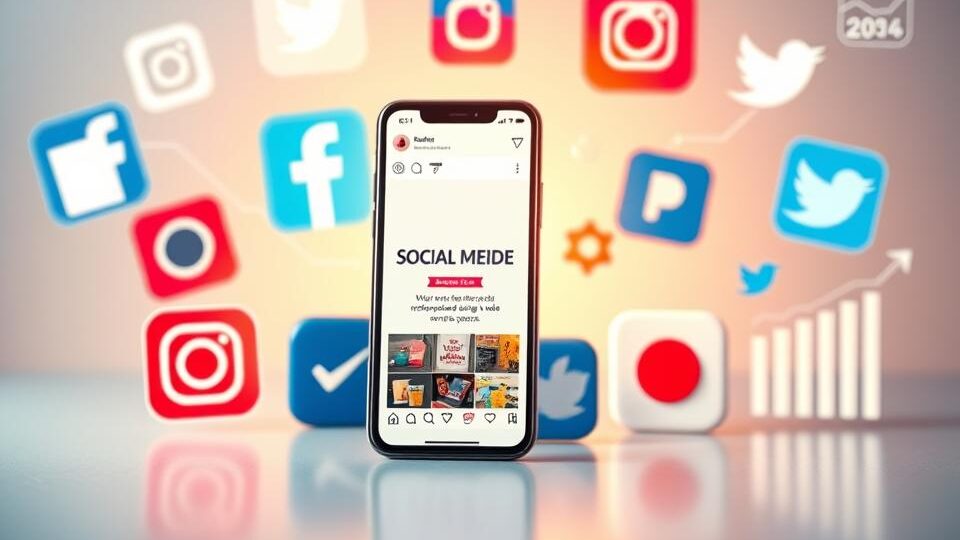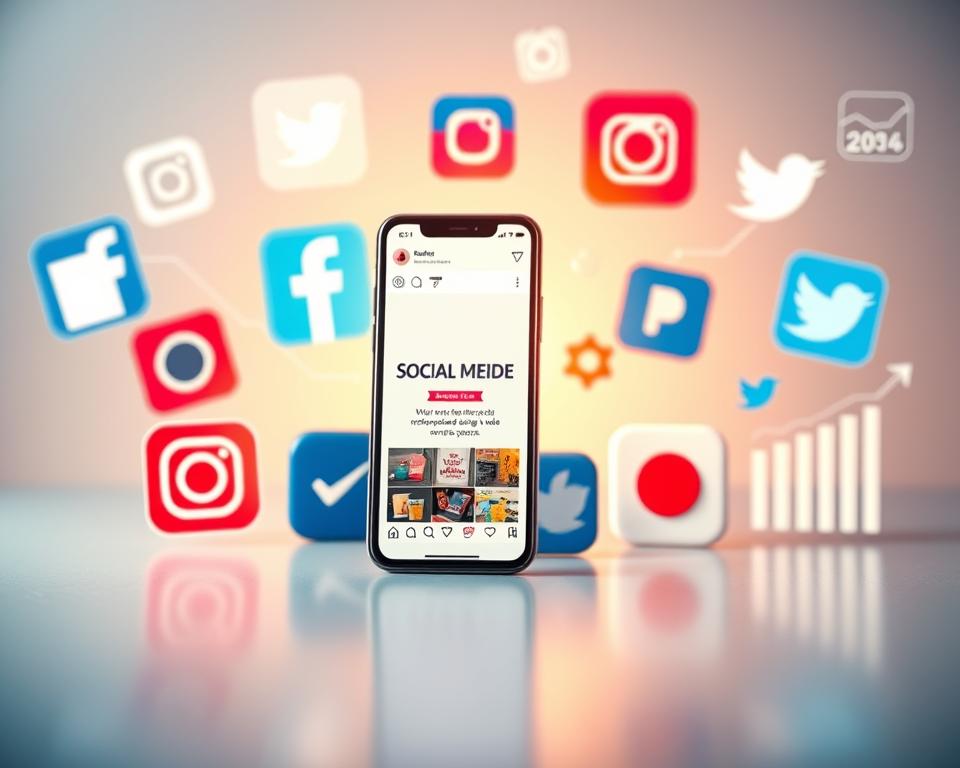
Best Practices for Company Website Accessibility
1on1 Marketing: Unlock Personalized Customer Engagement.
Ever ponder why some brands connect deeply with their audience while others falter? The answer is 1on1 Marketing, a revolutionary approach that transforms generic marketing into personalized experiences. By dialing into personal preferences, it forges a bond that mass marketing simply can’t replicate. This approach shifts the focus from mass marketing to tailored strategies that speak directly to each customer’s heart.
When companies embrace 1on1 Marketing, they forge deeper connections. They create strategies that genuinely strike a chord with their audience. This section explores the core of 1on1 Marketing, showing how it enables brands to engage with customers on a more personal level, company website.
How Marketing Strategies Have Transformed
The marketing landscape has seen a significant transformation over the years. At first, marketers deployed broad-brush strategies aimed at average customers. Today, the market demands a focus on customer engagement through tailored dialogues. This transition highlights the necessity to see customers as individuals rather than as a homogeneous mass.
With marketing’s evolution, it’s clear that generic tactics no longer cut it. Modern strategies aim to create meaningful interactions, building relationships instead of just pushing products. Marketers now use data insights to inform their approach, moving towards personalized tactics that meet unique customer needs.
This evolution not only deepens customer connections but also boosts brand loyalty and retention. In a world where consumers face endless choices, brands that offer personalized experiences stand out. They craft platforms for dialogue and engagement, ensuring customers feel appreciated.

| Strategy Type | Characteristics | Example |
|---|---|---|
| Generic Approach | Mass targeting, general appeal | Generic ad campaigns |
| Personalized Engagement | Customized dialogues, precision targeting | Custom product suggestions |
Why Personalization Matters in B2B Marketing
As B2B marketing shifts, personalization becomes indispensable. Marketers aim to boost conversion rates through personalized 1:1 marketing. Studies show that many see this method as key to keeping customers. In today’s fast-paced world, connecting with audiences through effective engagement is critical.
Customization addresses the hurdle of capturing attention. It ensures content resonates with each customer’s unique preferences. Focusing on personal experiences allows brands to shine amid competition.
As touchpoints multiply, the demand for personalization grows. Companies embracing tailored tactics meet needs and forge lasting bonds. Such an approach provides a competitive advantage in today’s market.
Understanding 1on1 Marketing
One-to-one Marketing centers on customizing experiences for each customer. It leverages data insights to design personalized engagement tactics. This approach creates strong customer connections by focusing on individualized experiences.
For example, a coffee shop where the barista remembers a customer’s favorite order illustrates one-to-one marketing. This small act shows how paying attention to preferences can boost satisfaction. It turns a simple transaction into a memorable experience, building loyalty.
To implement one-to-one marketing, companies must deeply understand customer data. They examine behaviors and preferences to craft messaging. This guarantees marketing efforts hit the mark with distinct tastes, producing stronger connections and greater satisfaction.
As companies pursue personalized engagement, they recognize that customization underpins lasting success. Those mastering bespoke experiences gain substantial rewards.
Benefits of Personalized Customer Engagement
Personalized customer engagement brings numerous benefits to modern brands. It significantly increases satisfaction by delivering experiences that align with individual needs. Studies show that 80% of consumers prefer to buy from brands that offer personalized interactions. This highlights the significant impact of customized marketing.
Personalized loyalty programs drive retention. By targeting distinct pain points and tastes, companies foster a sense of being valued. This connection fosters repeated purchases, driving profitability.
Personalized marketing also leads to higher conversion rates. Custom suggestions and targeted messaging steer customers from consideration to purchase. Highlighting the benefits of personalized marketing enhances brand perception and positions businesses for success in a competitive market.
| Benefit | Description | Impact |
|---|---|---|
| Happy Customers | Personalized experiences enhance overall customer happiness. | Increased chances of repeat purchases. |
| Loyalty Programs | Custom offers boost customer engagement. | Stronger retention and brand loyalty. |
| Conversion Rates | Targeted content spurs customer actions effectively. | Boost in sales and revenue. |
Hurdles to Personalized Marketing
Implementing tailored marketing presents several challenges. One major challenge is the complexity of data collection. Robust data is essential for effective segmentation. Without it, marketers struggle to craft messages that truly resonate, leading to missed opportunities and inefficient campaigns.
Brands targeting specific audiences must navigate the fine line between personalized and generic communication. Big enterprises struggle to keep a personal touch amid heavy automation. This can result in losing the personal touch that customers cherish. – Marketing 1on1official company website 1 on 1
Smaller businesses also have their own set of challenges. They often struggle to define their messaging, hindering their ability to leverage personalized marketing’s benefits. Recognizing these challenges is essential for marketers aiming to improve their strategies and engage customers more effectively.
Tech That Powers One-to-One Marketing
Groundbreaking technologies in marketing are reshaping the realm of personalized customer engagement. CRM systems are pivotal for managing customer data. They organize data, essential for crafting bespoke experiences. A robust CRM system allows companies to grasp customer preferences and behaviors more deeply.
AI enhances personalization with precise targeting and automation. ML algorithms analyze large datasets to reveal trends and behaviors. This enables marketers to refine their strategies. Automation reduces manual effort and heightens campaign impact.
Studies reveal that 72% of marketers focus on CRM systems for personalization. Marketing automation tools are used by 55% to streamline campaigns. These tools enable large-scale customization. This ensures marketing efforts connect with individual consumers, avoiding generic messages.
The integration of these technologies in marketing fosters a more dynamic approach to customer engagement. The rapidly changing landscape prompts marketers to embrace advanced tools. These tools not only improve efficiency but also strengthen connections with their audiences.
Best Practices for Personalizing Marketing Efforts
Effective personalized marketing hinges on key best practices. They guarantee resonance and improved engagement. Key components include:
- Audience segmentation is essential for targeting specific groups based on common traits. This method allows for more precise messaging, boosting engagement rates significantly.
- Using optimized messaging enhances the customer experience. Uniform, relevant messaging across platforms builds trust and fosters ongoing engagement.
- Adopting experimental approaches, like A/B testing, is critical. It identifies the most effective tactics by comparing messages and metrics.
Utilizing customer data is vital for understanding their behaviors and preferences. Regular analysis refines strategies. By adhering to these best practices, brands can craft a personalized approach that resonates with their target audience.
Innovative Personalization Tactics
Innovative tactics improve personalization across all touchpoints. Brands now use personalized emails that match individual tastes, making messages more impactful. Analyzing purchase history allows spot-on product suggestions, driving sales.
Segment-specific videos are another smart tactic. They capture attention and forge emotional bonds with viewers. Adaptive loyalty programs that align with behaviors reward meaningful interactions, enhancing the journey.
| Creative Tactic | Description | Benefit |
|---|---|---|
| Personalized Emails | Emails designed to individual preferences and behaviors. | Increases engagement and conversion rates. |
| Product Recommendations | Suggestions based on previous purchases and browsing history. | Enhances sales and customer satisfaction. |
| Segmented Videos | Video content customized for specific segments. | Deepens brand connection and engagement. |
| Adaptive Rewards | Rewards systems that adapt to individual behaviors. | Drives loyalty and repeat business. |
Companies gain significantly by weaving customized offers into social media, email, and app alerts. Each interaction is a chance to show the brand’s dedication to personalized marketing. This creates unforgettable experiences that help the brand stand out in a busy market.
Emerging Trends in Personalized Marketing
The world of 1on1 marketing is rapidly changing, driven by the latest marketing trends. AI will power campaigns tailored to individual requirements. It enhances campaign outcomes and strengthens connections by delivering timely, relevant content.
Omnichannel experiences are another key trend. Customers now expect a smooth journey across different platforms, from social media to emails. Brands must ensure consistent messaging to meet these expectations. Knowing interaction points helps craft a cohesive journey, bolstering loyalty.
Adapting to these shifts, ethical data practices will become essential for maintaining trust with consumers. With growing concerns over data privacy, marketers must be transparent and responsible with data. Prioritizing ethical practices meets regulations and builds trust, paving the way for loyal relationships in one-to-one Marketing’s future.